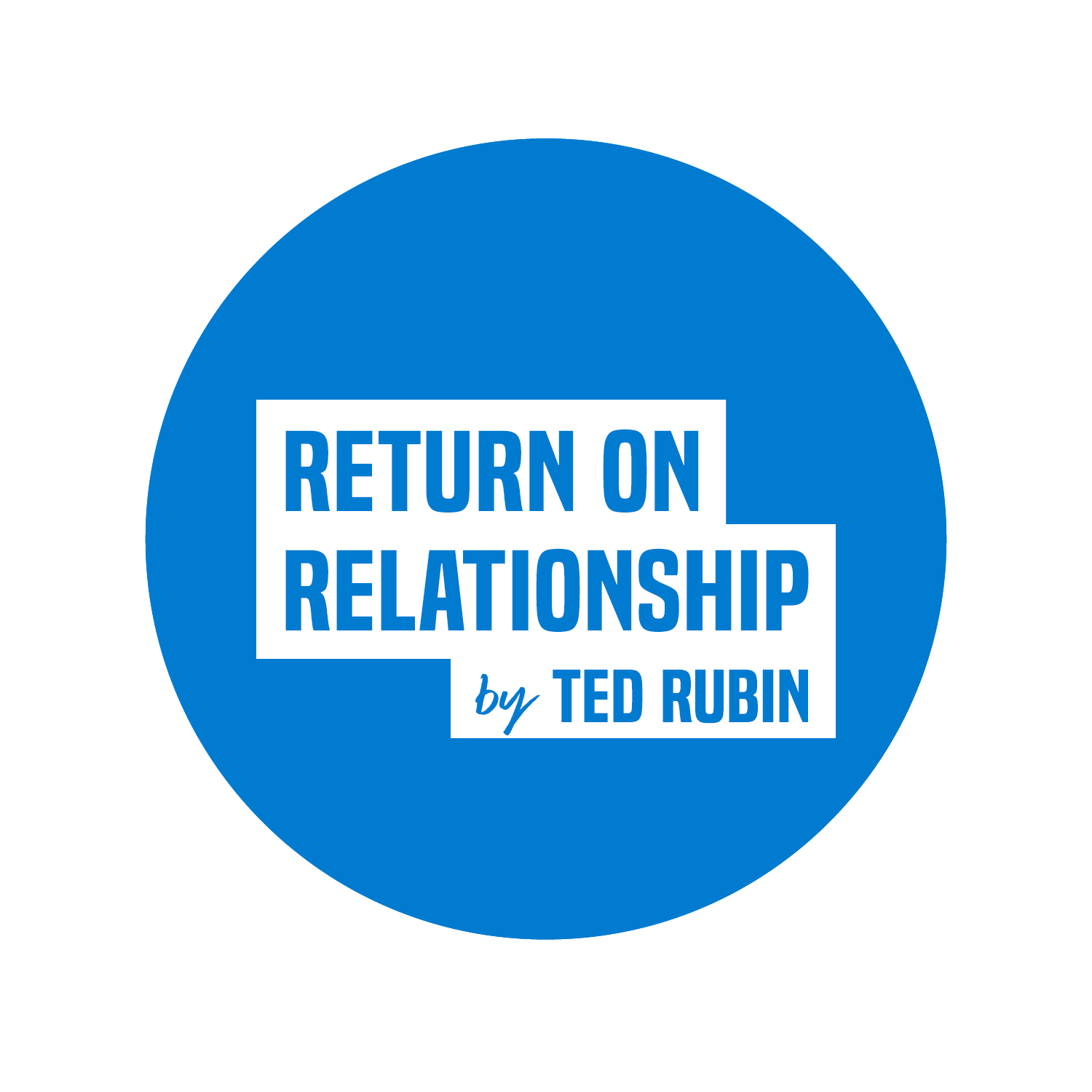VIP Q&A: Ted Rubin on Return on Relationship, Personal Commerce, Digital Marketing’s Future and More ~via @Jivox's Anna Luo
Jivox is a cloud-based, data-driven platform for delivering personalized digital advertising and marketing experiences at scale. Anna, SVP Digital Marketing & Customer Innovation, and I talked about the future of retail, direct-to-consumer, employee advocacy, and more. /Ted
“Much of a future consumer’s product needs are becoming anticipated and automated…it’s ‘personal commerce’ that anticipates, reacts and satisfies consumer demand, often before the demand has fully materialized.” -Ted Rubin
Voices In Personalization (VIP) is a thought leadership spotlight series where we feature digital marketing personalization experts’ POV on industry and technology trends, insights, and advice for the digital and eCommerce marketing community. In this inaugural post, I have had the pleasure of speaking with a leading social media marketing strategist and champion of Return on Relationship (#RonR), Ted Rubin.
Tell us about yourself?
I’m a social marketing strategist, international keynote speaker, business advisor, author, connector, and provocateur. In March 2009, I started using and evangelizing the term ROR, Return on Relationship. Simply put, the value that is accrued by a person or brand due to nurturing a relationship. ROI is simple $’s and cents. ROR is the value (both perceived and real) that will accrue over time through loyalty, recommendations and sharing.
I believe everything we do in our personal lives and business revolves around relationships… now more than ever. With effort, an online relationship may begin from the request of a Facebook friend or following someone on Twitter; but make no mistake – that initial request or follow will never create the relationship. Trust is built upon interaction, when you’re true to your word, authentic, and genuine. To build relationships online, you (as a brand or individual) have to offer value in return. Be it via valuable information or personal introductions, engagement and interaction will remain key.
Who do you think will win the retail battle between Amazon, Walmart, Shopify, etc. and why?
I do not personally see that as a win and lose situation. There seems to be a place for all three for sure. Amazon certainly “owns” digital, and IMHO will continue to do so for the foreseeable future. In addition, the services industry is theirs to lose, AND the same goes for private label… everyone will buy an Amazon private label product, but the market is severely limited, in that respect for Walmart, to their lower end demographic. BUT Walmart most definitely owns store-based retail, has a dramatic lead in locations for everything from pick-up to distribution, and for them the unbanked are theirs to lose. Shopify has built their niche, and is the platform of choice, for the vast amount of “new” retail, big and small, that will be at the heart of product innovation.
Personalization is an important driver for eCommerce and eCommerce marketing. What advice would you share with brands to give them a leg up?
Make personalization real, not just an automated and bot controlled process. Calling me by my name IS NOT personalization. Create systems that allow and empower engagement at scale, and be sure to bring personalized information, what I have bought, what I have returned, and my feedback, to the fingertips of your consumer facing employees.
Which direct to consumer brands are doing a good job and why?
Much of a future consumer’s product needs are becoming anticipated and automated, moving towards a friction-free experience. This is beyond e-commerce; it’s ‘personal commerce’ that anticipates, reacts and satisfies consumer demand, often before the demand has fully materialized. For example, products like Nespresso are already well on the way to becoming fully automated in terms of consumer fulfillment. Innovative Nespresso brewers can track usage and place automatic orders based on minimum personal inventory levels, so that a user never runs out. Nespresso parent Nestlé is aggressively pursuing direct-to-consumer models across many parts of its portfolio.
How can employee advocacy help with digital marketing?
Start thinking about “the influencers inside.” Like all influencer marketing, employee created content has always been with us through word of mouth, networking and personal connections. These used to be informal and unstructured forms of communication but increasingly, marketers are recognizing the ability of company employees to connect with their networks and affect “personalization and localization,” two of the most important parts of modern marketing. With large and loyal employee communities, retailers, in particular, can benefit from content-enabled employees that have the tools, training and encouragement to create and share company content. “Empower your Employee and they will Power your Brand!”
Walmart has quickly become a leader in employee content enablement. The world’s largest retailer has thousands of local-store employees creating content using TikTok and other social media platforms. Walmart is taking a formal approach to the new layer of influencer marketing and actively tapping its associates to participate through its Spotlight program and giving them tools and more importantly, content creation training. Walmart marketer, Zach Lones, is one of the leaders of the effort and is an accomplished content creator in his own right.
What’s your take on the future of digital marketing?
Changing shopper behavior creates a land grab for retailers and brands alike. Established brands like Nike are making huge strides to connect directly with shoppers, preparing for a future where a good portion of retail is direct. Upstart brands including AllBirds, Warby Parker and Dollar Shave Club have been pushing incumbents to embrace more flexible channel strategies as well, and the trend is expanding exponentially in 2021.
Incumbents and challengers alike are exploring all kinds of channel mix combinations although with a common tactical thread… all brands are seeking direct relationships with shoppers instead of relying on third party retailers, especially with how the #Covid19 pandemic has dramatically altered shopping behavior.
Customer Experience with our Marketing gains attention as retention becomes more important than ever… we worry all the time about customer experience with our employees, product, purchase, and service, BUT we have overlooked a critical part of the customer experience, and that IS how “our” marketing affects “them.” We’ve got data coming out of our ears, so tracking the results of our marketing efforts in terms of dollars and cents is becoming easier and easier. However, all these efforts only measure the upside of banging consumers over the head (how many more clicks, shares, engagements, and ultimately sales, do we get). No regard is given to the downside numbers. What we are NOT tracking is the point at which our customers turn from just annoyed, too fed up with our bot stalking and algorithm tweaking.
I think we need to spend as much time finding ways to track the negative effect of our marketing efforts as we do the positive ones. Every brand that continues to bang your customers or followers over the head again, and again, and again – without regard to the damage it is doing to brand equity – is going to suffer as we move forward in this customer, “my media, my commerce, my way” world. Marketing will truly win when humans control the machines, instead of the machines controlling the humans. #RetailRelevancy




